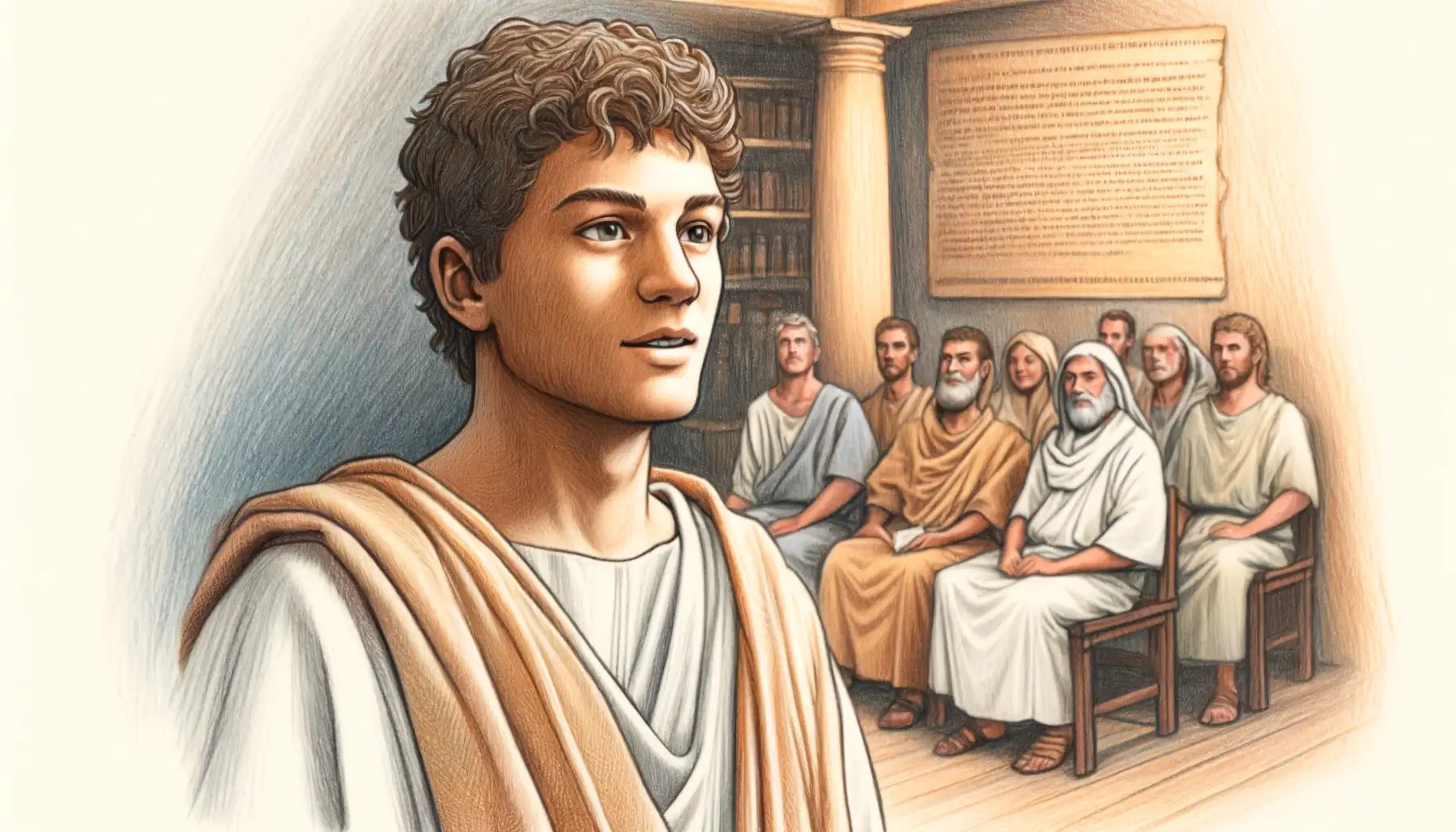
Timothy’s Legacy: Faithful Servant and Church Leader
Timothy, a significant figure in the New Testament, is celebrated for his steadfast faith and dedication to the early Christian church.
- Heritage: Born to a Greek father and a Jewish-Christian mother, Eunice.
- Mentorship: Protégé and close companion of the Apostle Paul.
- Pastoral Role: Served as a pastor in Ephesus and other early churches.
- Letters: Recipient of two New Testament epistles, 1 Timothy and 2 Timothy.
- Character: Known for his genuine faith, humility, and leadership.
- Contribution: Played a crucial role in the spread and establishment of early Christianity.
- Scriptural References: Acts 16:1-3, 1 Timothy, 2 Timothy.
Early Life and Background
Timothy was born in Lystra, a city in Asia Minor, to a Greek father and a Jewish mother, Eunice, who, along with his grandmother Lois, instilled in him a strong foundation in the Scriptures (2 Timothy 1:5; Acts 16:1). This mixed heritage uniquely positioned Timothy to bridge cultural divides within the early church, making him an effective missionary and church leader.
Mentorship by Paul
Timothy’s journey of faith took a significant turn when the Apostle Paul visited Lystra during his second missionary journey. Impressed by Timothy’s reputation among the believers, Paul chose him as a companion and mentee (Acts 16:1-3). Timothy underwent circumcision to respect Jewish customs, enhancing his ability to minister to both Jews and Gentiles. This act of humility and commitment set the tone for Timothy’s ministry alongside Paul.
Pastoral Role and Challenges
Timothy’s role extended beyond that of a companion; he became a trusted delegate and pastor. Paul entrusted him with critical responsibilities, such as overseeing the church in Ephesus, where Timothy faced numerous challenges, including false teachings, church disputes, and the need for sound doctrine (1 Timothy 1:3-4). Paul’s epistles to Timothy provided guidance, encouragement, and practical advice for leading the church.
Letters to Timothy
The letters of 1 Timothy and 2 Timothy are invaluable sources for understanding Timothy’s legacy and the early Christian church. These epistles address pastoral care, church leadership, doctrinal integrity, and personal conduct. They reveal Timothy’s character: his sincerity (1 Timothy 1:5), youthful vigor (1 Timothy 4:12), and occasional timidity, for which Paul often urged him to be bold and courageous (2 Timothy 1:7).
Character and Virtues
Timothy is remembered for his:
- Faithfulness: His unwavering dedication to Paul’s mission and the Gospel (Philippians 2:22).
- Humility: Willingness to serve in various roles and adapt to cultural contexts for the sake of the Gospel.
- Leadership: Effective pastoral leadership in nurturing and stabilizing early Christian communities.
- Compassion: Genuine care for the welfare of believers, reflecting the heart of a shepherd (Philippians 2:20).
Contribution to Early Christianity
Timothy’s legacy is profound. His work in establishing and strengthening early Christian communities was pivotal during a formative period for the church. By embodying the teachings and spirit of Paul, Timothy helped ensure the continuity and spread of Christian doctrine. His life and ministry exemplify the importance of mentorship, faithful service, and pastoral care in the growth of the church.
Theological Insights
Several theological themes emerge from Timothy’s life:
- Mentorship and Discipleship: Timothy’s relationship with Paul underscores the importance of mentorship in spiritual growth and leadership development.
- Faith and Practice: His adherence to sound doctrine and ethical living illustrates the integration of faith and practice in Christian leadership.
- Resilience in Ministry: Despite challenges and opposition, Timothy’s perseverance highlights the necessity of resilience and reliance on God’s strength in ministry.
Conclusion
Timothy’s legacy as a faithful servant and church leader endures as a testament to the power of mentorship, the importance of sound doctrine, and the impact of dedicated pastoral care. His life exemplifies the virtues of faithfulness, humility, and resilience, providing a model for Christian leaders and believers throughout the ages.



